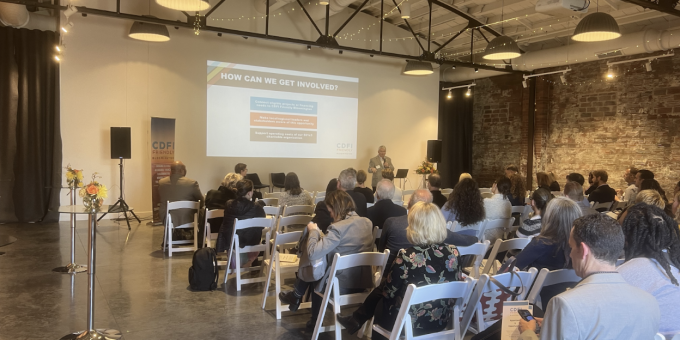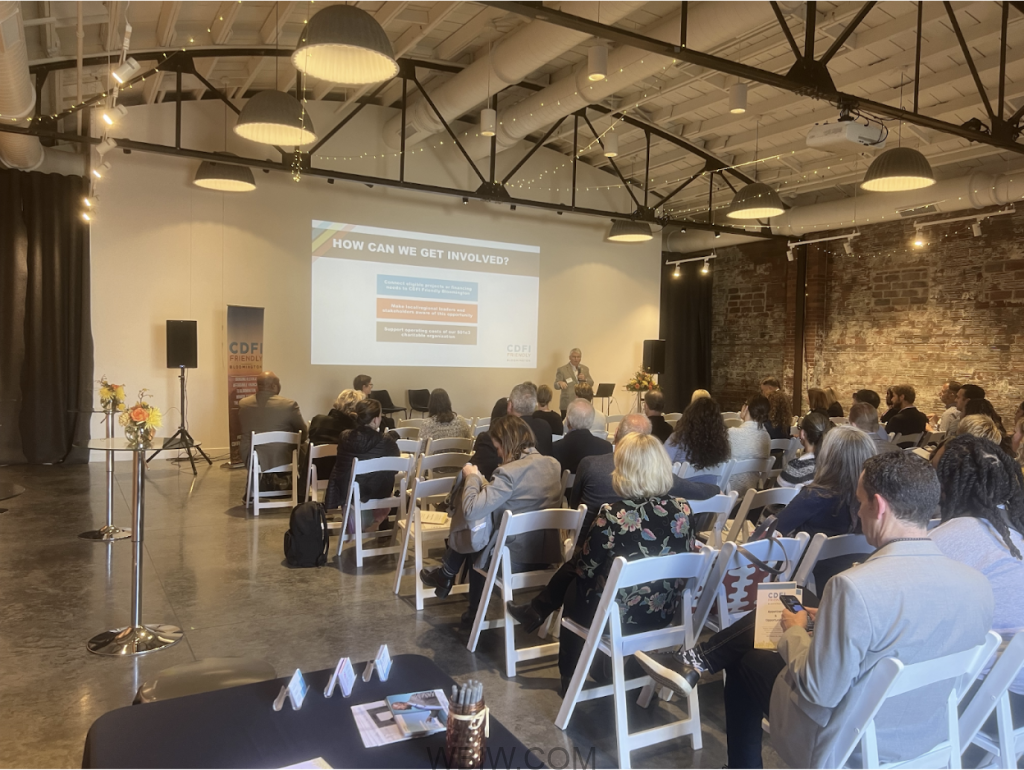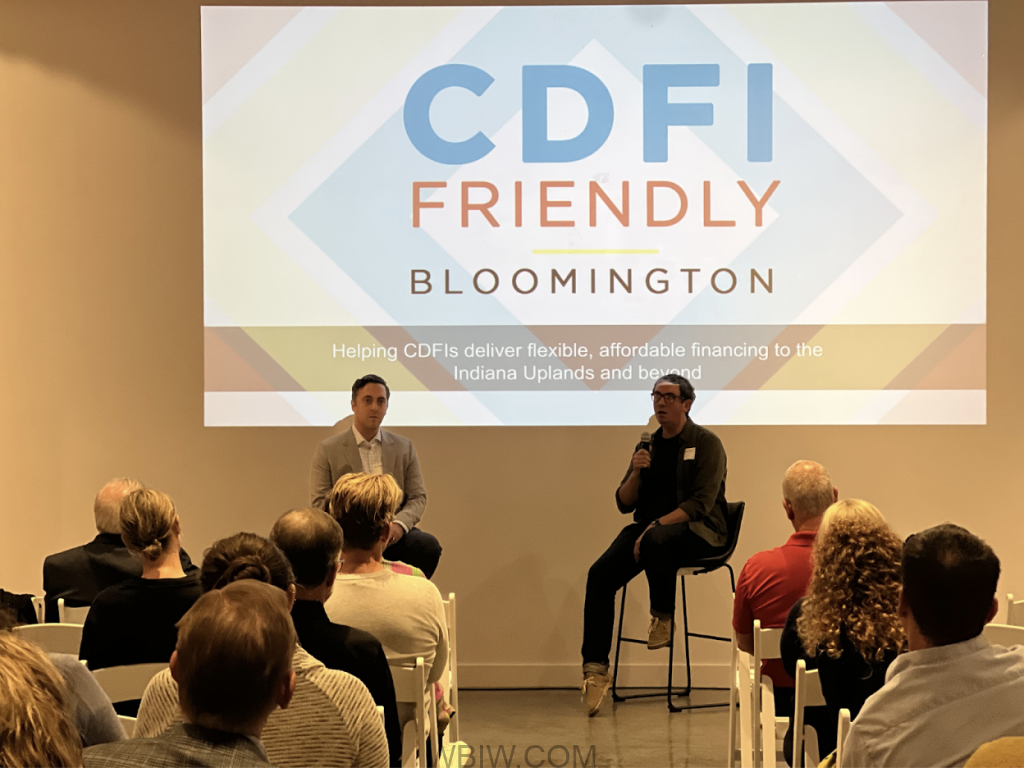
BLOOMINGTON – CDFI Friendly Bloomington, the nonprofit founded to bring more mission-oriented investments to the area, hosted its annual “Appetizers & Opportunities” event Monday to report on its progress and to convene more than 80 individuals representing regional partners, including Community Development Financial Institutions (CDFIs), banks, small businesses, affordable housing developers, local elected officials, and other community development advocates.

In 2018, Bloomington became the nation’s first “CDFI Friendly” city—a new strategy developed to help smaller communities increase flexible and affordable financing for businesses, nonprofits, affordable housing, and other community projects. CDFI Friendly Bloomington, a 501(c)3 nonprofit, has attracted $25 million in CDFI capital investment to the region since its launch, more than a twenty-fold increase in the pace of such investments. Nine participating CDFIs across 34 individual investments have leveraged $57.4 million in total project investments. Learn more at: cdfifriendlybtown.org

Mayor John Hamilton spoke about the impact of the friendly model on the region and the power of CDFIs. The event featured CDFIs Bankable, Community Investment Fund of Indiana, IFF, Local Enterprise Assistance Fund, and Bloomington Cooperative Living.

“Creating connections and facilitating access to capital strengthens our community and helps meet critical needs for housing, jobs, social services, and climate progress,” said Mayor John Hamilton. “We have been gratified to see how becoming a CDFI-friendly city over the last five years has advanced so much opportunity and positioned us for future projects like the Hopewell neighborhood and the $27 billion Greenhouse Gas Reduction Fund.”
Josh Glickenhaus from Local Enterprise Assistance Fund (LEAF), a CDFI out of Boston that supports cooperatives in housing and business, said “Working with CDFI Friendly Bloomington and Bloomington Cooperative Living has been a pleasure, and LEAF is proud to support their efforts to create affordable, community-oriented housing. LEAF is a national organization that relies on strong local partnerships to maximize its impact, and is grateful to have found such committed and capable partners in Bloomington. We look forward to continuing our collaboration, and hope this model can serve as inspiration for more communities.”
CDFIs are specialized organizations that provide financial services in under-resourced communities and/or to persons or organizations who lack access to traditional financing. CDFIs grew out of the Civil Rights movement and the 1977 Community Reinvestment Act, which was an effort to push back against the practice of “redlining” by ensuring that banks invested in neighborhoods where they were taking deposits. CDFIs further address the wealth gap by providing access to capital outside traditional means, helping individuals build wealth by acquiring property, starting businesses, or investing in their communities in other ways. CDFIs were formalized by the 1994 Riegle Act and now comprise a $452 billion industry.
CDFI Friendly Bloomington (CFB) was established through support from the city administration and the Community Foundation for Bloomington and Monroe County, along with local financial institutions. Led by Executive Director Jane Kupersmith, CFB provides technical assistance for organizations that seek nontraditional financing and works to connect borrowers with CDFI funders. CFB has helped facilitate affordable housing, small business capitalization, public art installations, a pandemic relief loan fund, and a grant and loan program to help individuals and organizations install green infrastructure.



